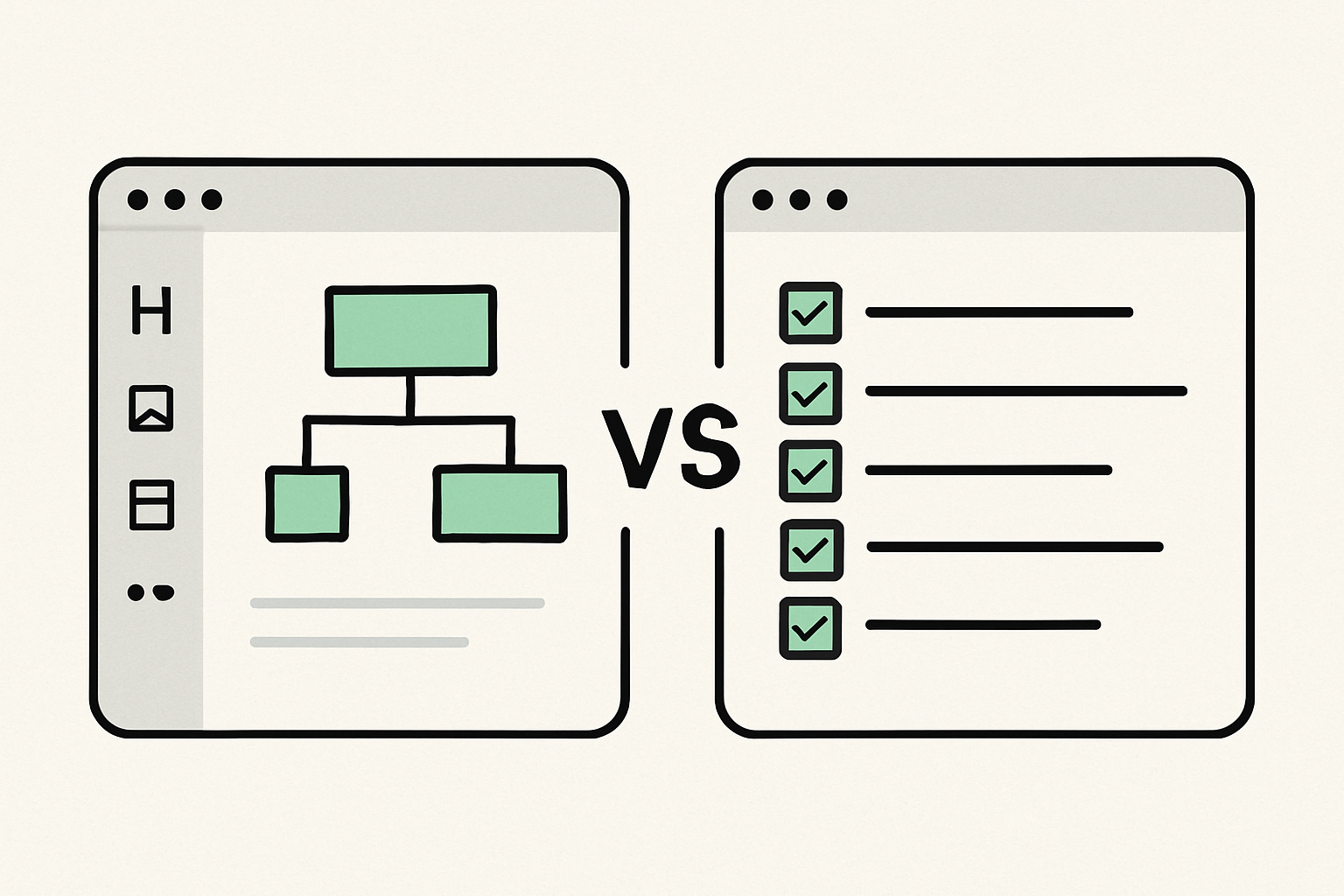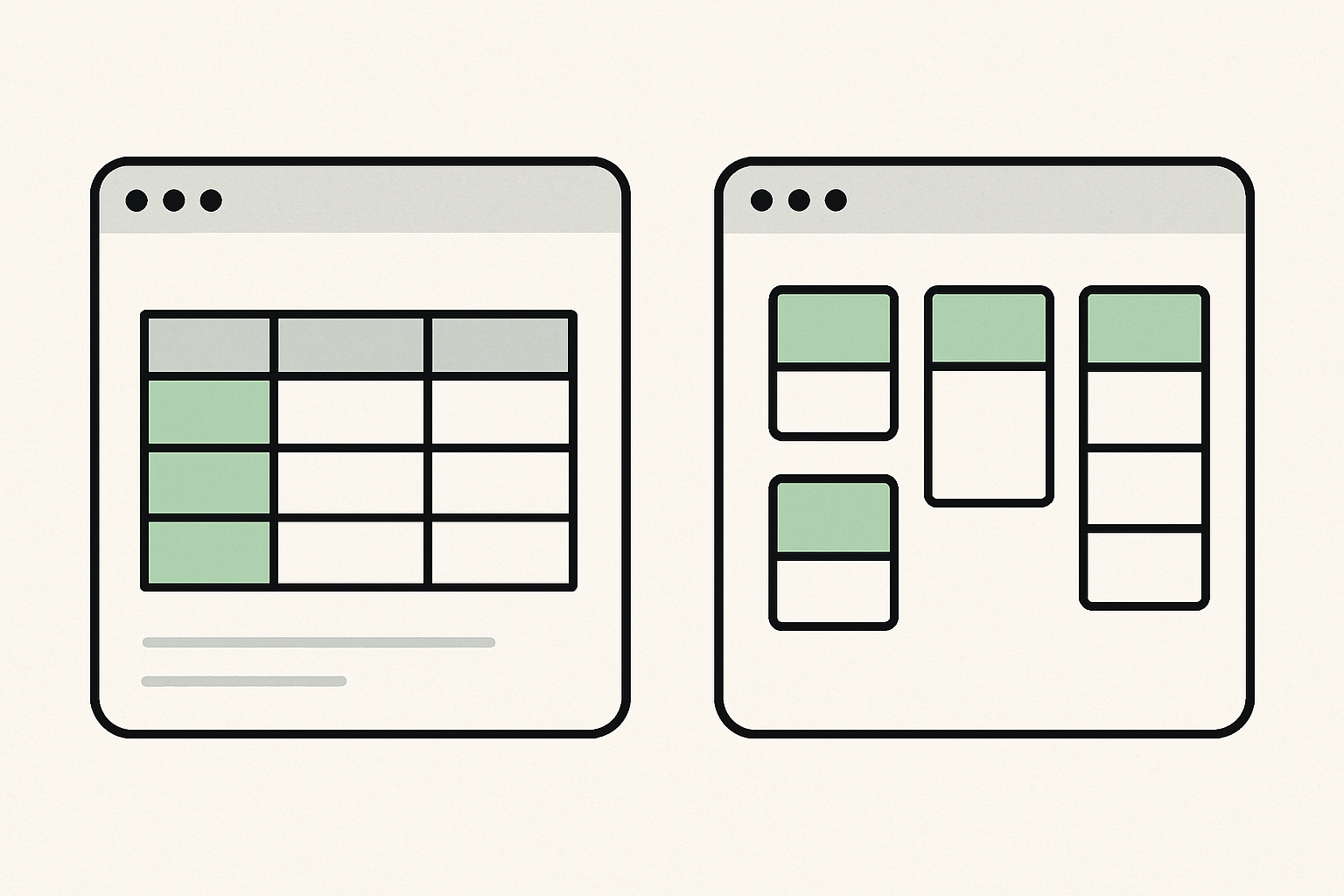Why Out of Notion? | 매거진에 참여하세요
Why Out of Notion?
#notion #update #reaction #users #comfortabl #enhancemen #upgrade
Performance issues, complexity, and rising competition—what’s really going on?
I used to be obsessed with Notion. It was my everything—docs, wikis, to-do lists, even a journal.
But these days? I barely open it.
And I’m not alone.
Online communities are now filled with threads like “Should I go back to Notion?” or “Why I switched from Notion to [insert alternative here].”
Team after team is quietly moving away.
So what changed?

1. It Got… Slower
The #1 complaint: Performance.
Notion's lag has become a real bottleneck—especially on mobile or when handling large, collaborative workspaces.
Pages take too long to load
Sync delays are noticeable in real-time collaboration
Mobile app? Functional but frustrating
In a world where responsiveness is everything, Notion’s sluggishness feels like a dealbreaker.
2. The Freedom is Overwhelming
Notion promises unlimited flexibility.
But for new users, that’s part of the problem.
“How do I structure my workspace?”
“What templates should I use?”
“Why does this feel more like architecture than note-taking?”
That creative freedom often turns into cognitive overload.
Ironically, many users eventually go back to simpler tools—like Google Docs or Slack—just to stay sane.
3. Falling Behind in the AI Race
When OpenAI, Google, and others ushered in the AI wave, productivity tools quickly began integrating AI across the board.
Notion responded early with “Notion AI.”
But that momentum stalled.
Still stuck at summarization and basic writing
Lacks contextual understanding or dynamic memory
Limited integration compared to AI-native apps like ChatGPT, Perplexity, or Craft
For AI-first users, Notion’s implementation just doesn’t cut it anymore.
4. UX Isn’t Minimal Anymore
Remember when Notion was beloved for its clean and simple UI?
Well, that’s no longer the case.
Dozens of block types
Heavier multi-column layouts
Too many features packed into single views
All of that adds up to an experience that’s too cluttered to focus—especially for something as simple as jotting down meeting notes or ideas on the go.
5. There Are Just Too Many Alternatives
The productivity stack is fragmenting—and that’s not a bad thing.
You don’t need one “do-it-all” tool anymore. You can now pick the best tool for each job:
- Simple notes: Apple Notes, Obsidian
- Team docs: Google Docs, Coda
- Task management: Todoist, TickTick
- Knowledge base: Slite, Confluence
Notion’s all-in-one approach once felt liberating. Today, it feels… unnecessary.
But Is Notion Actually Losing Users?
Surprisingly, no.
Over 100 million users globally
4 million+ paying users, as of 2024
Even conservative estimates show growth, not decline
So what’s really happening?
It’s not that users are quitting altogether—it’s that usage depth is thinning.
People still have Notion—but they don’t rely on it like before.
What About Web Traffic?
Current monthly visits: ~159 million
Slight decline: –0.34% last month
Minor drop, but not enough to declare a downfall
It’s more a soft shift than a collapse.
The Frustrations Are Real

⚠️ Slow Load Times
XDA Developers cited “lack of offline mode” and “average mobile performance” as major issues.
⚠️ Design Freedom = Confusion
As one reviewer put it:
“Notion is powerful—but that power becomes a burden when you don’t know what to do with it.”
⚠️ Overgrown Feature Set
The all-in-one dream turned into a bloated experience.
Sometimes, less really is more.
⚠️ AI? Meh.
Yes, there’s an AI feature.
But it’s basic.
Not enough to impress those expecting the magic of GPT-4 or Gemini integration.
⚠️ Limits and Bugs
Even free users face unexpected limitations like block caps.
Add to that three major outages in 2025 alone—raising concerns about Notion’s stability as a business tool.
So, What Has Notion Been Updating?
Here’s a quick timeline of recent milestones:
Date | Update |
|---|---|
2023-02 | Notion AI opens to all users |
2023-06 | Launches “Projects” with Kanban & Gantt views |
2024-01 | Cron rebranded as “Notion Calendar” |
2024-09 | Notion AI gets conversational updates & summaries |
2025-03 | Adds Page Verification & Conditional Forms |
2025-04 | Launches Notion Mail (email inside Notion) |
2025-05 | Introduces AI Meeting Notes & Enterprise Search |
It’s clear Notion isn’t asleep at the wheel.
But are these changes enough?
What’s Next for Notion?
They’re aware of the perception shift.
They’ve begun fixing key issues—like improving offline mode, simplifying the AI plan, and optimizing performance.
But here’s the deeper challenge:
Users today don’t just want more features—they want more fluidity.
Notion’s next big win isn’t about building another tool.
It’s about restoring rhythm, speed, and clarity in how people work.
Final Thought
Notion isn’t dead. Far from it.
But it’s no longer the irreplaceable darling it once was.
In today’s fast-moving ecosystem of productivity tools, being everything to everyone is no longer a strength—it’s a strain.
Perhaps it’s time Notion stopped trying to do it all,
and started doing what matters—faster, simpler, better.
—
Product trend analysis by bunzee.ai






